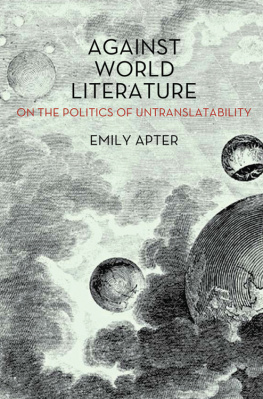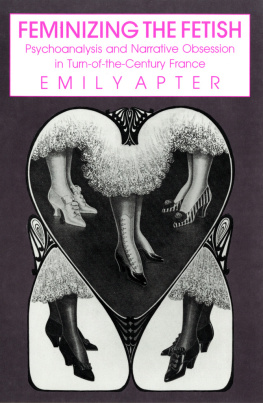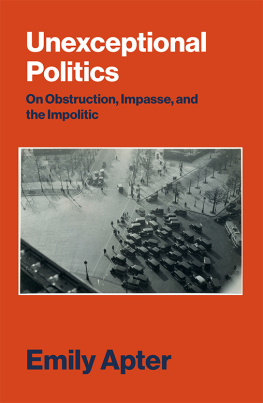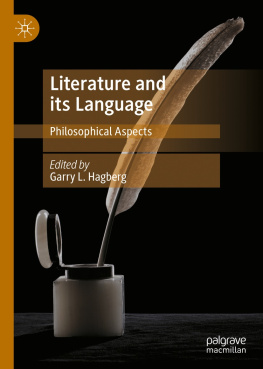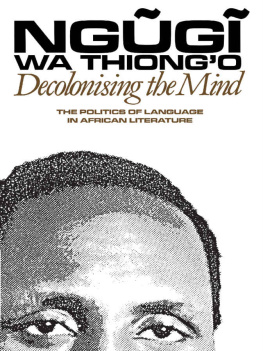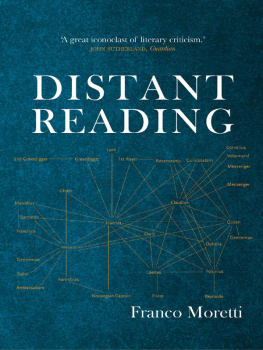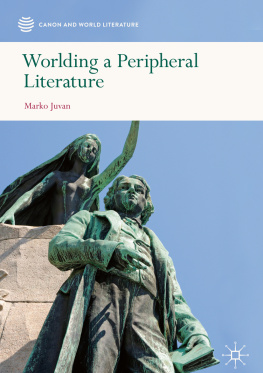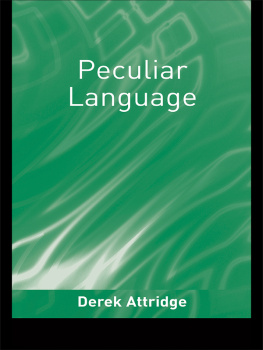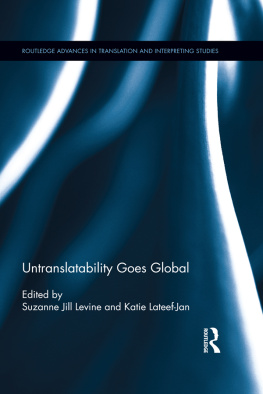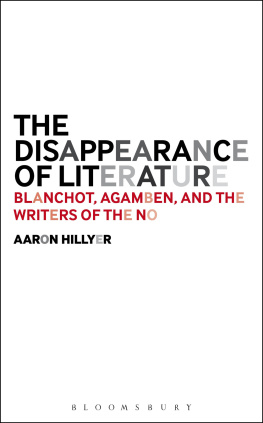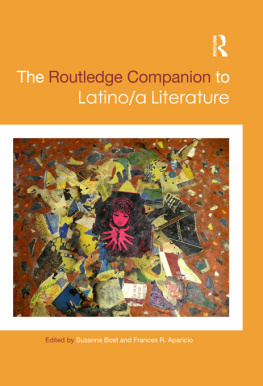Portions of this book appeared in the journals Sites, New Literary History, American Literary History, boundary 2, October, Angelaki, PMLA, Profession, Translation Studies and Third Text. Versions of several chapters were published in Transnational French Studies: Postcolonialism and Littrature-monde (edited by Alec G. Hargreaves, Charles Forsdick, and David Murphy, Liverpool University Press); Teaching World Literature (edited by David Damrosch, Modern Language Association); and The Blackwell Companion to Comparative Literature (edited by Ali Behdad and Dominic Thomas, Blackwell). For permission to republish, I thank the editors, journals and presses.
My thanks to Sebastian Budgen, an encouraging and persevering editor at Verso. To Barbara Cassin, editor of the Vocabulaire europen des philosophies: Dictionnaire des intraduisibles, I owe the philosophical construct of the Untranslatable and the opportunity to work on an immensely engaging collective projectthe translation and re-edition of the Vocabulaire in English. Working with Cassin, Jacques Lezra, Michael Wood and tienne Balibar provided ideas and impetus for this book; our discussions are part of its substance throughout. Co-teaching a graduate seminar entitled The Problem of Translation with Jacques Lezra under the auspices of the Mellon Foundation was the perfect forum for rethinking translation theory. Gayatri Chakravorty Spivak, tienne Balibar, Samuel Weber, Alain Badiou, Kenneth Reinhard and Bruno Bosteels helped set the terms for thinking the relation between philosophy and politics in the context of translation theory. Special thanks to Karim Mattar, David Fieni, Aamir Mufti, Thomas Keenan, Gil Hochberg, Omar Berrada and Leslie Dick for advice on checkpoints. Stathis Gourgouris, Dominic Thomas and Ali Behdad kindly provided the opportunity to develop and refine my reading of Edward Saids terrestrial humanism. Jane O. Newman shared galleys of her important studies of Erich Auerbach and Walter Benjamin and offered invaluable editorial guidance. In Paris, Barbara Cassin, Gisle Sapiro, Marielle Mac, Laurent Jeanpierre, Tiphaine Samoyault, Lionel Ruffel, Zahia Rahmani, Rahul Markovits and Blaise Wilfert provided stimulating contexts for presenting parts of the manuscript. As a Remarque Visiting Faculty member at the cole Normale Suprieure in Fall 2012 I had an excellent situation for the final phase of work.
At NYU, I have been lucky to have Denis Hollier and Richard Sieburth as close colleagues and constant interlocutors. Jane Tylus, whose own expertise in translation theory was greatly appreciated, created a close-knit intellectual community at the Humanities Initiative at NYU, where I was a fellow in 20092010.
For excellent opportunities to rehearse sections of the book, thanks to Margaret Cohen, Virginia Jackson, Martin Harries, Ron Clark, Aaron Levy, Avital Ronell, Franois Noudelmann, Lucien Nouis, Elisabeth Ladenson, Susan Bernstein, David Bellos, Samuel Weber, Toril Moi, Rda Bensmaa, Wai Chee Dimock, Aamir Mufti, Birgit Kaiser, Jonathan Arac, Paul Bov, Todd Reeser, Neil Doshi, Helena Buescu, Andrew Parker, Meredith McGill, David Damrosch, Robert Young and John T. Hamilton.
Anthony Vidler, Nicolas Apter-Vidler and Eleanor Apter gave constant feedback and support through untranslatable highs and lows. The book is dedicated to David Apter, whose practice of comparative politics and intense political engagements helped forge my own longstanding commitment to the politics of comparative literature.
World Literature, as a disciplinary rallying point of literary criticism and the academic humanities, became increasingly prominent from the mid-1990s on. Between 1991 and 1997, under the editorial stewardship of Djelal Kadir, the journal World Literature Today cast World Literature as a hosting ground to literary postcolonialism. Pascale Casanovas watershed book La Rpublique mondiale des lettres sparked renewed interest in World Literature in France after it appeared in 1999 despite an opening salvo that sounded anxieties over whether it was even legitimate to speak of World Literature. In its second life in English as The World Republic of Letters (published in 2004 in the series Convergences: Inventories of the Present edited by Edward Said), the book became a flashpoint in literary and cultural studies, especially with respect to allegations that it preserved a Eurocentric (and more specifically Francocentric) perspective in its reliance on the metropole-periphery distinction and Europe-generated criteria of cultural legitimation. Debating World Literature, a collection of essays edited by Christopher Prendergast in 2004, assessed the impact of Casanovas book as well as Franco Morettis influential essay Conjectures on World Literature (2000) as it set out to rescue the literature half of the World Literature configuration from the de-aestheticizing jaws of globalization. A conference held at Istanbul Bilgi University in December 2008 titled World Literature in Between, which kicked off with a conversation between David Damrosch and the Nobel Prizewinning Turkish author Orhan Pamuk, served as prelude to the launch of the The Institute of World Literature, spearheaded by David Damrosch at Harvard University. The Institute held its inaugural session at Peking University, Beijing in 2011 and on the same occasion marked The First Congress of the World Literature Association with a special focus on The Rise of World Literatures. As anthologies, volumes of critical essays and specialized studies with a world literary focus propagatesome emphasizing networks and systems oriented around Marxs hypothetical of a literary International, others emphasizing a Goethean lineage adjusted to an era of global finance capitalthe disciplinary construct that is here designated with upper case has secured its foothold in both the university institution and mainstream publishing. It stands in contrast to lowercase world literature, which may be considered a descriptive catch-all for the sum of all forms of literary expression in all the worlds languages.
In titling this book Against World Literature: On the Politics of Untranslatability, an interrogation shadows the provocation of the fore-title: if one is against the revival of World Literature in some of its new institutional guises, then what is one for? Certainly, as this book will make clear, I endorse World Literatures deprovincialization of the canon and the way in which, at its best, it draws on translation to deliver surprising cognitive landscapes hailing from inaccessible linguistic folds (what R. A. Judy, citing the eleventh-century Islamic philosopher ibn Sina, refers to as the arousal and wonder [

